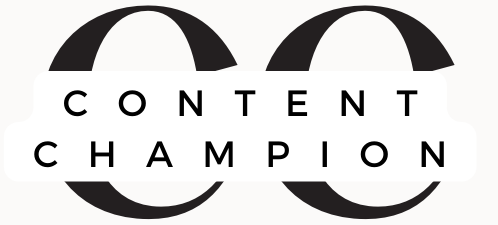
Think about this scenario: You spend years developing a new product for your business, scrape together a substantial marketing budget, and craft a press release to celebrate your launch. You eagerly submit your story and await the reactions. The next morning, you check your email and… nothing happens. Avoiding these common press release mistakes can be the difference between media coverage and being ignored entirely.
Press releases are a tricky beast in today’s saturated media landscape. Like the headlines that grab readers’ attention on major news outlets, you need a captivating, newsworthy story that stands out amid the sea of daily announcements. The challenge is that most business owners are experts at running their companies – not at crafting compelling news stories that journalists actually want to cover.
Fortunately, understanding a few key principles can dramatically improve your success rate. According to PR Newswire’s annual survey, less than 2% of press releases generate meaningful media coverage, but avoiding these fundamental mistakes will put you miles ahead of the competition.
Mistake #1 – Your Headline is Boring and Forgettable
Put yourself in a journalist’s shoes: You’re scanning through hundreds of press release headlines daily. It’s an overwhelming sea of company names and acronyms you’ve never heard of, announcing new locations or business achievements that seem mundane and self-serving.
Then suddenly, something catches your eye:
- “New Study Ranks Top U.S. Cities for Bedbug Infestations”
- “These Pencils Grow into Vegetables, Herbs and Flowering Plants”
These headlines grab attention because they focus on the story’s value to readers rather than promoting the company. They avoid excessive name-dropping and corporate jargon, instead introducing their story in an intriguing, benefit-focused way that makes people want to learn more.
Mistake #2 – Overusing Buzzwords Like “Breakthrough” or “Revolutionary”
“Avoid using too much marketing fluff like ‘breakthrough,’ ‘innovation,’ or ‘state-of-the-art’ to describe your product or service.”
– Madeline Johnson, The Marketing Council
Journalists and consumers are completely overexposed to these overused terms, which have lost all meaning and impact. According to HubSpot’s content marketing research, buzzword-heavy headlines perform 60% worse than specific, benefit-focused alternatives.
Instead of relying on empty superlatives, focus on describing what genuinely makes your offering unique. For example, “Fushigi Ball Poised to be Bigger than Snuggies, Xbox” is far more compelling than “Groundbreaking New Toy Fushigi Ball to Sell Out This Season.”
Common Buzzwords to Avoid:
Leader • Solution • Award-Winning • Exclusive • Premier • Game-Changing • Cutting-Edge • Next-Generation
Source: Adam Sherk, PR Strategy Expert
Mistake #3 – Writing an Advertisement Instead of News
“A press release is a tool to use when you have actual news, not when you want to advertise.”
– Lisa Concepcion, KMR Communications
Consider these two approaches for announcing a new app:
✅ News-Focused Approach:
Headline: “New YogiDoodle App Provides Psychological Analysis of Your Doodles”
Lead: “What does your doodling reveal about your personality? A new application decodes your mental state and emotions based on your drawings.”
This approach works because it’s newsworthy, different, exciting, and relatable to anyone who doodles.
❌ Advertisement Approach:
Headline: “YogiDoodle Reaches 1 Million Drawings Analyzed”
While reaching a million users might excite the company and their investors, it’s not inherently newsworthy to journalists or their audiences. The focus is entirely self-serving rather than providing value to readers.
Mistake #4 – Ignoring Current News Trends and Conversations
“Too many companies make their press releases all about them and their product. In our 24/7 media landscape, with everyone competing for attention, simply shouting louder doesn’t make anyone stop and notice.”
– Kimberly Spencer, Crown Yourself
The most effective press releases connect to broader conversations happening in the media. Research trending topics on Google Trends or monitor industry discussions on Reddit to identify opportunities where your company can contribute meaningful insights or solutions.
Your press releases should read like news articles, adding value to ongoing conversations or, even better, providing solutions to problems people are actively discussing.
Mistake #5 – Failing to Get Proper Permission and Approval
This cautionary tale from Wayne Perry of Greensations illustrates why permission matters:
“Our first major breakthrough brand was Sinus Buster hot pepper nasal spray back in 2005. CVS picked up the brand for their website to test it for an eventual launch in their stores. This was huge for our small company… I got a bit too excited and sent out a press release through PRWeb once the product appeared on the CVS website.
“Two days later, the CVS buyer called us to Rhode Island for a meeting. We thought they were going to put us in stores! Instead, when he walked into the room, he immediately screamed at us and said he decided they were NOT taking the product into stores because we sent out a press release without their permission.
“We were lucky he didn’t pull it from the website entirely. The product eventually made it to stores and we sold the company, but it’s a lesson I’ll never forget.”
– Wayne Perry, Greensations
Key Takeaways for Press Release Success
Successful press releases require a delicate balance of newsworthiness, timing, and relationship management. Before sending your next press release, ensure you’re telling a genuine story that serves your audience’s interests, not just your company’s promotional goals.
For small businesses looking to distribute their press releases effectively, consider professional services like eReleases, which can help ensure your story reaches the right journalists and publications in your industry.
Remember: journalists receive hundreds of press releases daily. Make yours count by focusing on the story’s value to their readers, not just your company’s achievements.
